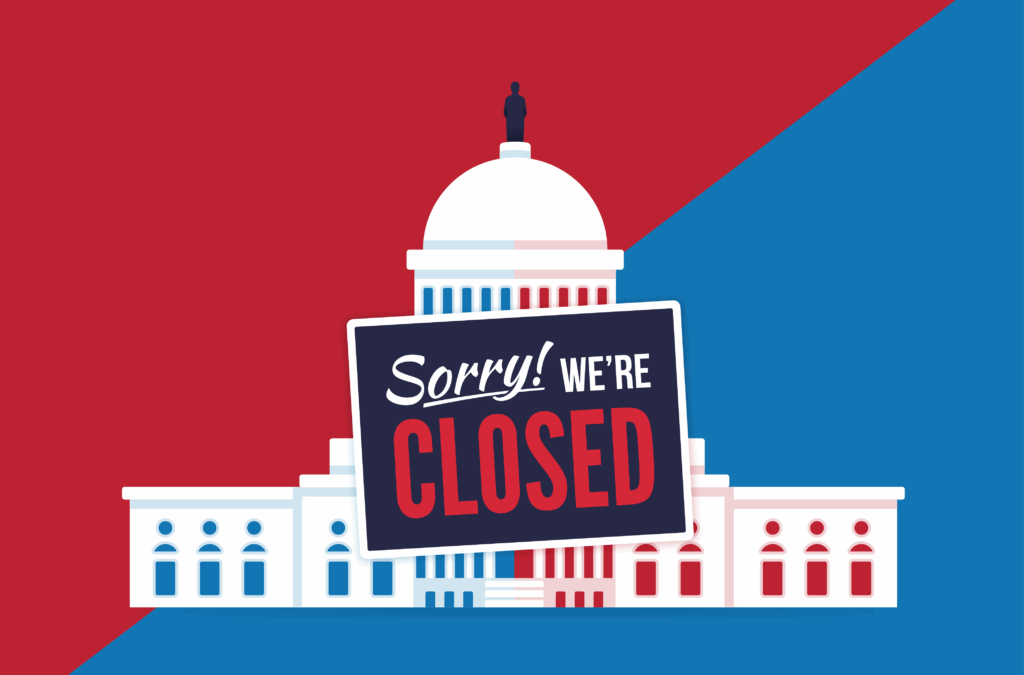
Opportunity Knocks: It’s Complicated

In early 2010, the Massachusetts health insurance exchange kicked off “Business Express,” its attempt to help small businesses with up to 50 employees find health coverage through an online website—but not without a fight. Brokers reacted angrily and the Massachusetts health insurance exchange “got its wings clipped,” recalls Chris Nadeau, head of William Gallagher Associates’ employee benefits practice in Massachusetts.
While brokers had previously been a part of the exchange process, the Express sped right by them and went directly to their clients—something many in the industry had predicted and currently worry about with the state and federally mandated exchanges created by the 2010 Patient Protection and Affordable Care Act.
Could government become a direct competitor to brokers?
Under new leadership, the Massachusetts health insurance exchange switched gears and has since reformed and relaunched the Business Express program.
“We are working to engage brokers,” says Glen Shor, the current executive director of the state’s health insurance exchange. But fears that government will step in and sever the broker-client relationship haven’t gone away.
And there’s good reason for concern as we approach Jan. 1, 2014, when, under the Affordable Care Act, all 51 health insurance exchanges must be operating. The Obama administration has already pumped $1 billion into the states to ensure they will work. When and if they are up and running, even more money will flow into them.
The Vermont legislature recently passed a measure to set up its health insurance exchange. Vermont state senator Claire Ayer, the Democratic chairwoman of the Senate’s Health and Welfare Committee, calls the measure “a pivot point” toward the state’s goal of a single-payer system.
“All the subsidies in the exchanges ultimately will incent many employers to drop their plans,” warns Joel Wood, The Council’s senior vice president of Government Affairs. “They are halfway houses on the road to single-payer hell. We just hitched a ride on that road.”
Federally Mandated Minefield
That road may or may not come to an end later this month. That’s when a divided Supreme Court rules on whether the entire Affordable Care Act, or even just the individual mandate compelling everyone who resides in the United States to purchase health insurance, is constitutional.
“Oddsmakers say the chance is 60% that the law will be struck down,” says Sam Geraci of Liberty Mutual, who studies healthcare reform. “And if some of it goes, it may all go.” But Scott Sinder, The Council’s general counsel, isn’t certain. “It’s easy to be misled when trying to read the tea leaves,” he says.
Even if Obamacare is struck down, some state health insurance exchanges will survive. They already operate in both liberal Massachusetts and conservative Utah. And governors in states such as California and New York plan to go ahead with them, even though Gov. Andrew Cuomo had to use his executive power to create one when the New York legislature refused to act.
Other state efforts have been set in motion by the Obama administration’s carrot-and-stick approach: 33 states have accepted grants to create insurance exchanges, and 14 have actually formed them, according to the Kaiser Family Foundation. States that have held back, including large southern states such as Texas, may find themselves in a federally mandated minefield if the exchanges survive the Supreme Court test. If they don’t act quickly, a federal health insurance exchange will be set up in their state.
“Whether the (individual) mandate is struck down or not, Georgia is under edict to establish an exchange,” state Insurance Commissioner Ralph Hudgens told the New York Times.
The Affordable Care Act requires each state to show significant progress in establishing an insurance exchange by Jan. 1, 2013, to have open enrollment that fall, and to be fully operational by Jan. 1, 2014, when millions of uninsured come knocking at the door. Each state will make up its own rules. This means that planning could be quick and shoddy, borrowing both good and bad ideas from existing plans. And even plans that have been in existence for years still have kinks to work out, say Utah brokers.
Preconceived notions, such as replacing brokers with health insurance exchanges, could come back to haunt some of these plans, much the way it did in Massachusetts and California.
“The rules provide great flexibility to the states,” warns an alert from The Council. “However, that same flexibility could allow many jurisdictions to restrict broker access to participation.”
Open-Air Marketplace
A health insurance exchange is supposed to resemble an open-air marketplace, where sellers display their wares and customers come to buy. In this scenario, the marketplace is an Internet website set up by the state but run by an independent board. The merchants are insurers, and the consumers are individuals who need coverage, as well as small and— beginning in 2017—larger businesses.
This allows the customer to negotiate directly with the insurer. By putting insurers in direct competition with each other, the cost of health insurance, which has been skyrocketing over the past decade, in theory should decline. Participating insurers would fund health insurance exchanges, and federal subsidies would aid those individuals who can’t afford coverage.
But federal and state governments have other agendas that conflict with this free-market model. The biggest issue: reducing the huge number of this nation’s uninsured—currently estimated at about 50 million. This figure could go even higher if employers, faced with spiraling healthcare costs, stop offering coverage to more workers.
Stumbling Start
That was the issue facing Jon Kingsdale, the founding executive director of the Massachusetts health insurance exchange. Better known as The Connector, the exchange was started in 2006 with a clear mandate: Insure everyone in the Bay State, and quickly. By the time Kingsdale left, the percentage of insured was up to 95% and has since risen even higher. The program was also popular. A recent poll showed that 63% of the commonwealth’s residents support this type of healthcare, compared to fewer than 50% nationwide.
But expanding the pool of insureds also brought in an unhealthy population, including “jumpers and dumpers” who purchased health insurance when they needed it and dropped it when they didn’t, according to Massachusetts brokers.
To improve the insurance pool with more healthy people, the state rushed its Business Express program into operation without a commitment from major health insurers. It also bypassed brokers and went directly to their small-business clients.
A March 2011 study by Georgetown University Health Policy Institute found that the Massachusetts Business Express had accessed state Department of Revenue data, used that data to send out self-promotional mailings to small businesses, and then tapped state funds to subsidize the effort. One broker told the Georgetown researchers that this exchange had “an insatiable appetite to create legislated competitive advantages for itself.”
Brokers were furious. They viewed Business Express as “a competitor that has aggressively encroached on their business and reduced their commissions,” says the Georgetown study. Kingsdale, now a consultant on healthcare, could not be reached for comment.
Massachusetts officials never admitted they’d made a mistake, but in February 2012 the new executive director of the state’s health insurance exchange, Glen Shor, announced a relaunch of the Business Express program. Now, all eight major health insurers would participate. Equally important: Shor wanted brokers involved.
“We did a series of broker training sessions, and we hired a business development manager from the brokerage world,” he says. “Letters to brokers’ clients are not part of our marketing effort today.”
The Connector pays brokers’ commissions, including a one-time bonus. The best evidence of change on The Connector’s website is the button that reads “Brokers.”
Broker Bias
Massachusetts wasn’t alone in trying to cut brokers out of the process. No one can deny that the healthcare system, which relies on a relationship among companies, brokers, medical providers, insurers and government, is overpriced. One theoretical way to cut expenses is to replace the middleman with a computer program that automates the process and lets a customer transact business online.
This might work with travel agents and traditional stockbrokers, says Terry Gardiner, vice president for policy and strategy of the Small Business Majority, but not in a business where personal relationships are key and brokers play a role in the decision as well as signing documents.
That’s why California’s health exchange “got off on the wrong foot” and went out of business in 2006, he says.
“New exchanges typically run into problems when they try to push brokers out,” Gardiner says. “Brokers influence their clients’ choices and can steer them inside or outside the exchange. They will fight tooth and nail if there’s an attempt to cut them out of their relationship with employers.”
What government officials have failed to understand is the true value of brokers in the process. If agents and brokers were simply transactional processors, they could easily be replaced by a computer. But insurance is more than selling stocks or airline tickets. It’s complicated, and there are hundreds of options. Smart business people understand their own business, but they usually have no clue what the best option is for their own business when it comes to buying insurance. The broker fills the void. Yet even after the failure of insurance exchanges that did not include brokers,
some government officials still fail to understand this.
Despite the complexity of the products and options, it is still necessary for brokers to defend their role. The threat comes from several fronts: insurers reducing commissions, employers fearful that healthcare costs could bankrupt them, and a public confused by the 2,409-page law.
Smaller brokers, who are not geared to deal with the new world of benefits, are cutting back, even in states where a health insurance exchange is still a distant possibility. “It’s already knocked agents out of business,” complains Jim Walker, president of Brentwood, Tenn.-based Individual HealthCare Specialist. He cut his staff in half when insurers cut commissions by more than 40%, a figure verified by other brokers around the country.
Not in Our Sandbox
But larger commercial brokers view health insurance exchanges as an opportunity. “We get fees from our clients, so we don’t play in that sandbox,” says Mark Holloway, Lockton’s director of compliance services. “And we don’t see the exchanges pushing brokers out.”
Instead, says Nadeau, “Problems and complexity are a boon for us.”
The Massachusetts Connector’s new website is easy to use. But faced with a multitude of choices for “bronze, silver and gold” plans, the ultimate decision to buy is never easy.
“The Massachusetts experience illustrates that ‘consumer choice’ is a complicated concept,” says the Robert Wood Johnson Foundation. A report quotes Kate Bicego, the consumer education and enrollment manager at Healthcare for All, a Massachusetts-based consumer advocacy group: “It left consumers saying, ‘I don’t know how to compare.’ ”
Small business faces even more problems dealing with a simple point-and-click solution. Do I need a high deductible if my employees are susceptible to injury? What if I employ workers who live outside the state?
And they must do it with fewer resources.
“Eighty percent of small businesses in the U.S. have fewer than 10 employees, and the person running them has to be president and CEO,” Gardiner says. “He can’t be running an HR department. He needs a trusted advisor to deal with multiple types of insurance for the same reason he needs a tax accountant.”
What happens if company executives want a plan but employees opt out? Federal and state authorities could view this as discriminatory. “Discrimination is a big deal,” Nadeau says. “It’s a rat’s nest. And the fines are huge if you make a mistake: $100 per day per employee.”
Brokers looking for a positive health insurance exchange experience should try the Utah model, whose website includes a link for “Agents and Producers.”
“In this state, you have to have a broker to get into the exchange,” says Janet Metcalf, a broker with The Buckner Company, who sits on the board of the advisory panel. Premium and commission payments from the exchange are “fair and equitable and comparable to what insurers pay,” she says, although the technology to service the system is handled by multiple companies that don’t always speak the same language.
Think National, Act Local
Brokers won a major victory in March, when the Department of Health and Human Services, perhaps learning from the Massachusetts experience, said that brokers would be allowed to direct companies to the exchanges. In fact, there are 150 references to “brokers” and “commission” in the new regulations.
Gardiner says brokers should take advantage of the HHS rules by having a representative on the health exchange board (some already do) and by getting the exchange to form a “broker advisory committee.”
Having knowledgeable brokers on board could help exchanges avoid many of the mistakes made in the past, such as California’s previous attempt, which drowned in 2006 after it enrolled too many sick and injured in the pool of insureds.
“The exchanges will need to pull in healthy people,” says Mark Duggan, professor of business and public policy at the University of Pennsylvania’s Wharton School. If the pool of insureds is too shallow, insurers will simply jump out, according to a Pacific Business Group on Health study. Exchanges can avoid this by building “strong partnerships with health insurance brokers,” the study says.
A Pyrrhic Victory
Before declaring victory, brokers should look at their bottom line. They may gain status but lose income. Insurers are now less a part of the equation, and the battle for an employer’s checkbook could be long and hard. Health insurance exchanges may pay, but rates could depend on how much they need brokers to help them and, in Massachusetts, Nadeau says, the Business Express is paying less than insurer Blue Cross.
“We coexist with them,” he says. But it’s no love affair. And of course the medical loss ratio provision hangs over brokers like the sword of Damocles; companies can’t pay more than 20% for medically unrelated items.
Those who have seen the brave new world up close say brokers should streamline their administrative services, use technological advances like Facebook to reach clients, become automated, and recognize that brokerage is now a 24/7 business. They must become hunter-gatherers on a large scale, learning foreign languages and reaching out to new constituencies. In a word, adapt.




